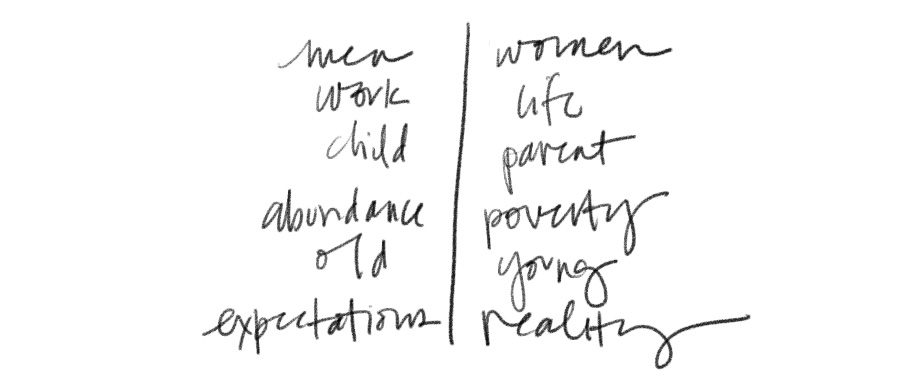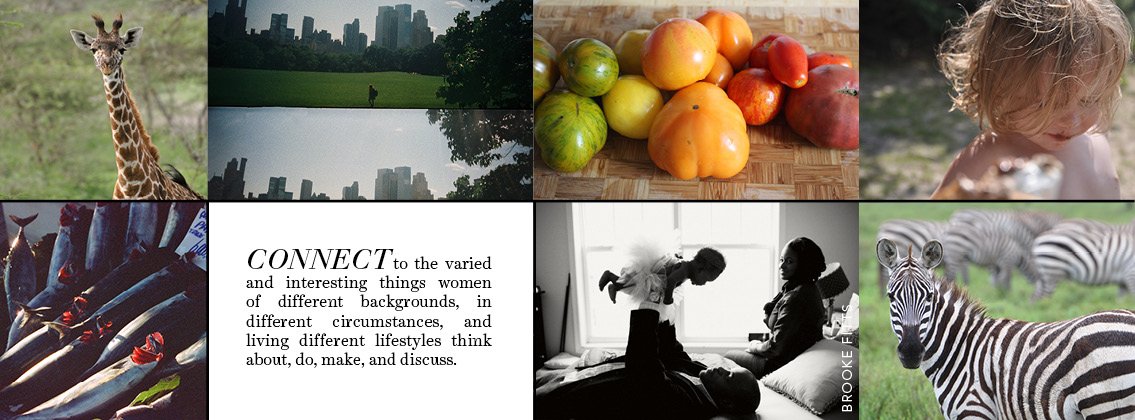I am a careful curator of my own digital life, a user and lover of many websites on the Internet. But my Pinterest account was short-lived.
One evening, I found myself pining for Bogotá—for its lively, colorful streets—as I scrolled through a photo essay on a travel blog. I made up my mind. This place is next. And since I had recently joined Pinterest, all I had to do was click the “Pin It” button in my browser bookmarks bar—and voilà. My dream destination was pinned. Filed away. Captured. Done.
For a moment, I felt productive.
* * * * *
I had joined Pinterest to see what I was missing. Naturally, I created boards for my interests, from my own photographs of street art to deliciously decrepit abandoned buildings (a board I called “Elegant Ruination”).
But these images were largely ignored by other users: no repins, no likes, no comments.
From the beginning, I saw what people liked: Party ideas. Hairdos. Photographs of luxury bungalows along the sea. Yes, people liked other things too, but when I perused Pinterest in the weeks I had an account, I saw more images from gourmet cupcake recipes and wedding planning blogs than I’d ever seen. And there’s nothing wrong with cupcakes and weddings—I happen to love both—but from the start this visual paradise just didn’t seem like my thing.
But I wanted to enjoy it.
So, giving in to Pinterest’s aspirational world, and my own desires, I added a board of industrial-chic lofts and a complementary board of pretty designer things to put inside my imaginary million-dollar space: Overpriced honeycomb-shaped bookcases at CB2. Lamps and rugs from Room and Board. What the hell, I thought. Let the drooling consumer in me go wild.
Suddenly, I found myself searching interior design blogs for airy spaces with high ceilings, brick walls, and wooden beams; and indoor swings, hammock beds, and hanging egg chairs to pin. While my own photographs of gritty art and urban ruins got little to no attention, these images of my dream domicile were repinned and liked and commented on like crazy.
And so, I observed this process for several weeks.
* * * * *
On my blog, Facebook, and Twitter, I’ve constructed a persona primarily from my own writing and photography. From my creations. Yet Pinterest was different: it encouraged me to shape my digital identity by curating content that was not mine: Marketable representations of goods. Other people’s dreams. Things I will never have. Pixelated perfection, I suppose. And so I swirled in a community of repinners and dreamers, in a Stepford-wifesque reality.
I noticed many users creating travel bucket lists, and at a glance, their boards were shiny and tidy and vibrant. So one evening, I tried the same: I created another board for places I wanted to visit. But the more I pinned images of Colombia and Cuba and Morocco, the more I felt as if I was bottling up experiences that had yet to happen—and may not happen—shaping my hopes and uncertainties into concrete, clickable images and then filing them away.
I once read a piece about bookmarking articles to read later, with the help of tools like Instapaper. It talked about bookmarking as a form of anti-engagement—a moment of fake action, of swift satisfaction: “It provides just enough of a rush of endorphins to give me a little jolt of accomplishment, sans the need for the accomplishment itself.”
I thought about this as I organized stunning images on my boards, some of which were snapshots of cities I had longed to explore. The process was entertaining, but time-consuming and, ultimately, inert. Or, it felt as if I was moving backward—foraging and favoriting, then labeling and archiving. In a way, I was doing something. And yet the more I pinned, the more I felt further disconnected from doing itself—a step in the opposite direction from the image, the idea, the what-if I had pinned.
When I realized I had been sitting upright in bed, pinning and accumulating “things” for three hours, I deleted my account.
Sure, I was collecting things in an online space. But it still felt like clutter, fit for shoe boxes under my bed. And with Pinterest, my aspirations no longer floated in my head. They were right there: discoverable, pinnable, and recyclable by others.
Aren’t my dreams supposed to be elusive? Unable to be bookmarked?
I don’t doubt Pinterest is fun and effective if you use it in a way that works for you. But it felt strange, even meaningless, to compartmentalize and file away my dreams. Yes, I am a planner and organizer—and an active curator of my digital life.
But at some point, I just had to stop.
 I don't know about you, but I take on many roles. I'm a mother, a daughter (and daughter-in-law), a friend, a surrogate aunt, a wife, a sister-in-law, a business partner, a cousin, a niece. When we started to think about The Equals Project, it was important for us to visually think about the constant straddling that women do. While at the core of our beings, we are equals — equals to men, equals to each other — we often live with one foot on either side of an invisible line. Our logo brings that line to the surface. Equals straddles a solid line, indicative of the many divides we encounter—men/women, work/life, child/mom, abundance/poverty, old/young, privileged/
I don't know about you, but I take on many roles. I'm a mother, a daughter (and daughter-in-law), a friend, a surrogate aunt, a wife, a sister-in-law, a business partner, a cousin, a niece. When we started to think about The Equals Project, it was important for us to visually think about the constant straddling that women do. While at the core of our beings, we are equals — equals to men, equals to each other — we often live with one foot on either side of an invisible line. Our logo brings that line to the surface. Equals straddles a solid line, indicative of the many divides we encounter—men/women, work/life, child/mom, abundance/poverty, old/young, privileged/





